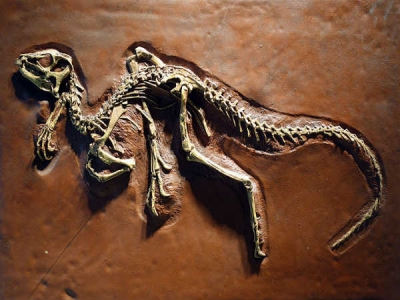What is the career in palaeontology?

The formidable dinosaurs from Jurassic Park and the super-sized parrots that lived on Earth millions of years ago maybe extinct today, but you can learn all about them by studying their petrified remains. By examining fossils of prehistoric plants and animals that existed on Earth, palaentologists try to trace the evolution of life on Earth. What makes their work relevant today, you ask? Well, uncovering details about the past climates and extinctions helps palaeontologists try discover patterns in climate change, and in a way, predict the future. So if you are interested in history and exploring the natural world, the field of palaeontology could be the right fit for you.
How it works?
Palaeontology is the study of fossils to trace the evolution of life on Earth. There are two major branches of palaeontology: vertebrate and invertebrate. Invertebrate palaeontology examines fossils of plants, microbes, molluscs, corals, crabs, shrimps, sea urchins and sponges. There are abundant invertebrate fossils in the world. On the other hand, the fossils of vertebrate are rare and harder to find.
Scope
Palaeontologists work with archaeological departments and geological research institutes in India and overseas. Apart from research, you can teach in universities.
Opportunities:
Here’s a list of specialisations in palaeontology:
- Microplaeontologists study microscopic fossils.
- Plaeobotanists conduct research on fossil plants, including algae and fungi.
- Palynologists study pollen and spores.
- Human palaeontologists or palaeoanthropologists focus on the fossils of prehistoric humans.
- Taphonomists study the process that creates fossils.
- Ichnologists hunt for fossil tracks, trails and footprints, such as the dinosaur tracks found in Arkansas in 2011.
What to study?
Palaeontology is an interdisciplinary field involving geology, archaeology, chemistry, biology and anthropology. Most people prefer to opt for Palaeontology after B.Sc in Geology.
Where to study?
- Geological Survey of India, Hyderabad, offers a course in palaeontoloy.
- Jadavpur University, Kolkata teaches palaeontology as part of B.Sc (Geology Honours) and M.Sc (Applied Geology).
- Hansraj college, University of Delhi: B.Sc (Hons) in Geology
Abroad:
- University of Birmingham, the U.K.: Palaeontology and Geology B.Sc (Hons)
- University of Bristol, the U.K.: B.Sc Palaeontology and Evolution.
- University of Southampton, the U.K.: Master of Research and M.Sc in Geology.
- University of London, Birkbeck: Two-year certificate course in Earth History and Palaeontology.
- University of Kansas, the U.S.: MS in Geology.
Required skills
- Willingness to conduct hard field work in remote locations.
- Extensive research
- Patience
- Deductive and analytical skills
Picture Credit : Google